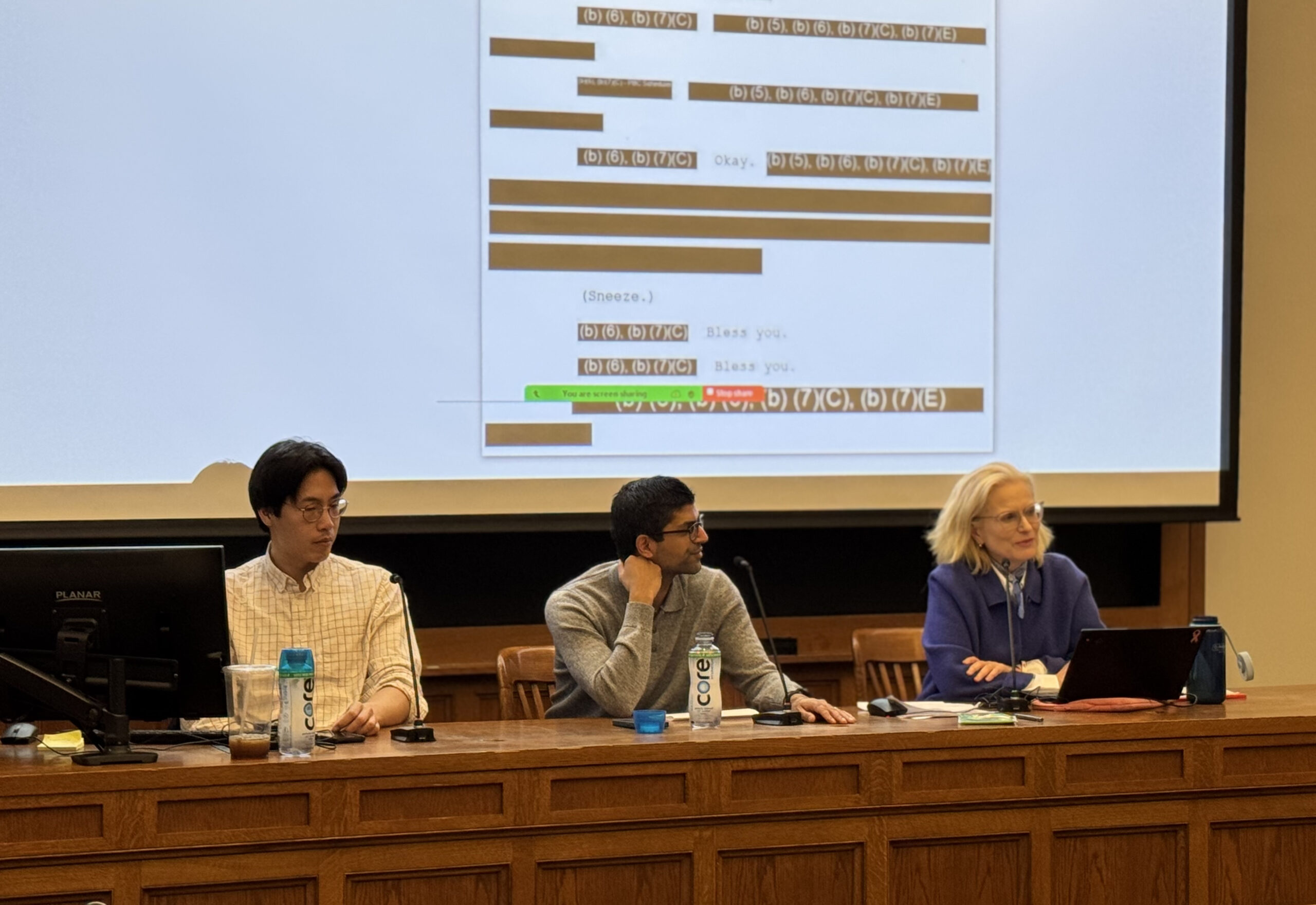Yale Law School hosts 12th annual FOIA bootcamp
In an event hosted by the Law School’s Media Freedom and Information Access Clinic, panelists addressed concerns over transparency in the Trump administration.

Chris Tillen, Contributing Photographer
On Tuesday evening, students and Yale community members gathered at Yale Law School to learn how to access records from the federal government through the Freedom of Information Act, or FOIA.
The event highlighted the need for specificity in requests, the potential for delays and the importance of conducting research before filing FOIA requests. It was co-sponsored by the Media Freedom and Information Access Clinic, the Abrams Institute for Freedom of Speech and the Information Society Project.
“People should know what the government is up to,” said Al-Amyn Sumar, a senior counsel at the New York Times Company who spoke on the panel.
Throughout the evening, students heard from Sumar, Jason Leopold, a senior investigative reporter on the Bloomberg News investigations team, and Tim Tai LAW ’24, a former photography editor for the News and the First Amendment Fellow at The New York Times.
The Freedom of Information Act grants the public the right to access governmental records. FOIA outlines that federal agencies must disclose requested information unless it falls under nine specific exemptions, including personal privacy and national security.
“I think that the Bootcamp proves significant every year, as we always aim to impart foundational skills (how to navigate FOIA, draft requests, negotiate with agencies, and litigate claims) to the journalists, activists, and citizens who attend, new and experienced alike,” wrote Benjamin Gervin ’26, the communications manager of the MFIA Clinic.
The panelists noted that the FOIA system is susceptible to long delays and wait times depending on which agency is supplying the documents and discussed how this could change amidst a new presidential administration.
Tai said he is wondering about how FOIA and public transparency will be handled under the current administration. Although he noted that it may become increasingly harder to get public documents from federal agencies, he added, “That’s not to say that we shouldn’t be trying.”
“Under the Trump administration, it’s still very early days, but it’s fair to say that the problems that we currently have will get worse,” Sumar said.
The panelists emphasized that specificity increases the chances of a shorter wait time. Leopold highlighted that many of these agencies are already dealing with backlogs.
Leopold also affirmed the need to conduct detailed research on the structure of a given agency before submitting the actual FOIA request.
“You need to approach FOIA as you would an investigative story,” noted Leopold, describing FOIA as its own journalistic “beat.”
The panelists further focused on the nine FOIA exemptions, emphasizing the challenges in overcoming them.
Mirabel Raphael ’28 attended the event because she wanted to learn more about accessing government records for research purposes.
In light of Trump taking office in January, Raphael anticipates the potential for increased hostility to citizen requests for transparency along with decreased safeguarding of classified information from the federal government.
“I feel that the significance of this event amidst a new presidential term is to lay the groundwork for us to understand what the landscape of FOIA was prior to Trump coming into office, so we can understand any changes that come from his administration,” Raphael wrote to the News.
Gervin described the takeaway from the guest speakers as “astute,” adding that he appreciated hearing from the range of journalistic professions represented on the panel.
The Freedom of Information Act was enacted in 1966.







